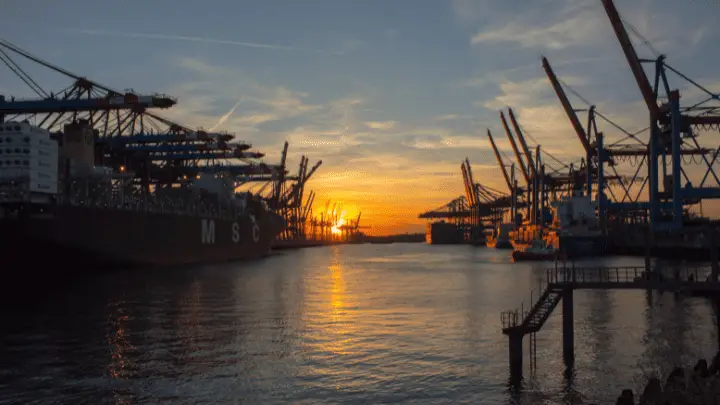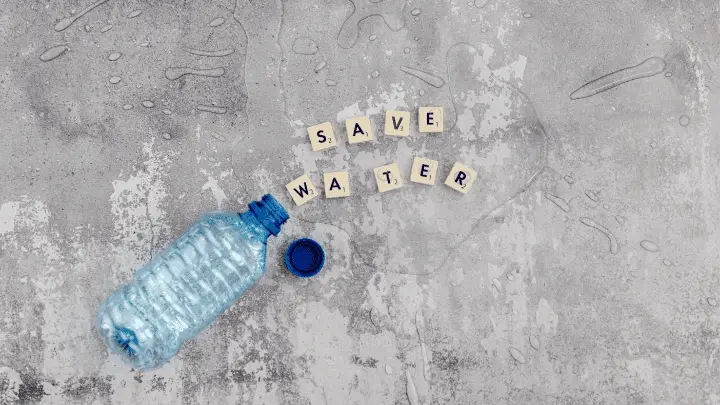Oil spills are a harrowing sight for marine creatures that call the vast oceans their home. While we may see them as a catastrophic event, the spill is a death knell for these creatures that rely on the ocean for survival. In case you were wondering why oil spills are bad for marine life.
The oil slick covers everything in its path, leaving marine animals gasping for breath as their habitat becomes toxic and polluted. Sadly, it’s not just a case of a few isolated animals affected, as entire species can be wiped out when an oil spill happens.
Even when the spill has been contained, its impact lingers for years as oil particles seep into the ocean floor, harming the bottom-dwelling creatures. As humans, it’s crucial to understand that the ocean and its creatures are our responsibility, and we must protect them at all costs.
Join me as I delve deeper into the question of “Why are oil spills bad for marine life?” and the devastation that these spills bring with them.
Overview of Oil Spills
Oil spills are a major environmental disaster affecting oceans and marine life. Oil spills vary in size, from small leaks to catastrophic disasters. Regardless of their scale, all oil spills significantly threaten marine life.
According to statistics, more than 706 million gallons of oil are spilled into the ocean yearly, with some spills being much larger. The Exxon Valdez spill in 1989 spilled over 11 million gallons of oil.
In addition, the Deepwater Horizon spill 2010 leaked an estimated 134 million gallons of oil into the Gulf of Mexico. As far as marine oil spills go, this was the largest in U.S. history. When released into the water, oil forms a thick, toxic layer on the surface.
These oil spills can have lasting effects on marine ecosystems.
What are the Causes of Oil Spills

1. Human error
Human error is a common cause of oil spills, often due to a lack of attention, inadequate training, or miscommunication among workers.
These spills can happen at any stage of the oil transportation process, from loading onto a vessel to unloading at the final destination. The consequences of such spills can devastate the environment and the communities that rely on it.
2. Equipment failures
Oil spills can occur due to equipment failures, which may involve pipeline ruptures or leaks from oil tankers. A range of factors, such as inadequate maintenance, aging infrastructure, or flaws in the design of the equipment, can cause these incidents.
3. Natural disasters
Natural calamities like hurricanes, tsunamis, and earthquakes can potentially cause extensive harm to oil rigs, pipelines, and other oil infrastructure. This can result in releasing large quantities of oil into the environment.
4. Deliberate spills
Sadly, some oil spills are caused by deliberate acts, such as sabotage, vandalism, or piracy. In some cases, companies or individuals may dump oil illegally to avoid disposal fees or to hide evidence of illegal activities.
Oil Composition and Marine Impact
1. The components of oil
The components of oil refer to the various substances that make up crude oil and its refined products. These can include hydrocarbons, sulfur, nitrogen, and other impurities. When oil spills occur, these components can have a range of impacts on marine life and the environment.
2. How oil interacts with water
Oil interacts with water in several ways. Oil spilled into the water can spread out, forming a slick on the surface. Consequently, it can block sunlight and prevent oxygen from entering the water.
Oil can also penetrate the water column, which can be toxic to fish and other organisms. Oil can also mix with sediment on the ocean floor, harming benthic organisms and ecosystems.
3. Toxicity of oil to marine organisms
The toxicity of oil to marine organisms can vary depending on the type of oil and the organism in question.
Oil can harm marine life in several ways, including damaging gills and other respiratory structures, impairing reproduction and growth, and disrupting feeding and behavior.
Oil can also have long-lasting impacts on ecosystems, as it can persist in the environment for years and even decades after a spill occurs.
Why Are Oil Spills So Bad for Marine Life?
1. Damage to aquatic ecosystems
Oil spills disrupt the delicate balance of the ocean. The chemicals in oil, such as polycyclic aromatic hydrocarbons (PAHs), are highly toxic to marine organisms. These substances can lead to mutations and reproductive issues among marine life.
In addition, oil spills can destroy phytoplankton and zooplankton, the base of the marine food chain. This disruption can result in the decline of fish populations and, in turn, affect predators further up the chain.
2. Effects on coastal habitats
Coastal habitats, such as mangroves and marshes, suffer immensely from oil spills. Oil can wash ashore, contaminating the coast and smothering delicate ecosystems like mangroves, essential for various marine species’ breeding grounds.
The damage caused by oil spills can be long-lasting, often persisting for years, even decades. This extended contamination negatively impacts marine life over time.
3. Environmental consequences
Oil spills have far-reaching environmental consequences. The spilled oil spreads and contaminates vast areas, leading to water pollution. This pollution harms the health of marine life and can have severe economic consequences for communities that rely on fishing.
Additionally, oil spills can lead to the death of countless marine species. The loss of biodiversity not only affects the environment but also human livelihoods.
4. Oil coating and smothering
Oil spills occur frequently. The oil forms a thick layer on the surface of the water, which can coat the feathers and fur of birds and mammals, making it difficult for them to move and stay warm. This coating and smothering effect can have lasting effects on marine ecosystems and threaten the survival of various species.
5. Impact on breeding and reproductive cycles
Oil spills can have a significant impact on the breeding and reproductive cycles of marine life. The chemicals in oil can cause mutations, reproductive issues, and developmental abnormalities in marine organisms, including fish, turtles, and birds.
When these organisms consume or come into contact with toxic substances, it can lead to a decline in their population. This decline can ripple throughout the food chain, affecting predators such as sharks and whales.
The ability of marine life to reproduce is also affected by oil spills, which can decrease the number of offspring produced. This can further exacerbate the negative impact of oil spills on marine ecosystems.
Oil Spill Cleanup and Mitigation

1. Containment and recovery efforts
Containment booms and skimmers are commonly used to contain and recover spilled oil. Booms are floating barriers containing the oil, while skimmers collect the oil from the water’s surface.
These efforts effectively prevent the spread of oil and minimize the impact of spills on marine life.
2. Chemical dispersants
Chemical dispersants break down oil into smaller droplets, which natural processes can more easily break down. While they can effectively reduce the immediate impact of spills, they can also harm marine life and the environment. Therefore, their use is often controversial.
3. Bioremediation
Bioremediation involves using natural microorganisms to break down oil into harmless substances. This technique effectively reduces the impact of spills on the environment and can be used to clean up contaminated soil and water. However, it can take time and may only be effective in some situations.
4. Ongoing research and technology
Research is ongoing to develop new technologies and methods for preventing and cleaning oil spills.
This includes using drones to monitor spills, develop more effective containment and recovery systems, and use natural materials like hair and straw to absorb oil. These efforts aim to minimize the impact of oil spills on the environment and marine life.
FAQs
Are oil spills common?
Oil spills are more common than one might think. They occur worldwide, with both small and large-scale incidents. While some receive significant media attention, many smaller spills go unnoticed.
What can individuals do to prevent oil spills?
Individuals can help by reducing their oil-based products and supporting environmentally friendly alternatives. Additionally, supporting regulations and policies that promote responsible oil drilling and transportation is crucial.
Do oil spills also affect human health?
Oil spills can indirectly affect human health through the contamination of seafood. Consuming contaminated fish and shellfish can lead to health issues—thus, monitoring and regulating seafood safety after a spill is important.
Do oil spills only affect marine life?
No, oil spills affect more than just marine life. They can harm coastal communities, tourism, and local economies. Cleanup efforts and recovery can take years, impacting people’s lives and livelihoods.
Why are oil spills challenging to clean up?
Cleaning up oil spills is difficult due to the vast and remote areas affected and the resilience of oil in the environment. Additionally, the chemicals and methods used in cleanup can have their ecological impacts.
The cost of cleaning up oil spills can also be immense. Findings note that the Deepwater Horizon spill cost about $63.4 billion in cleanup and compensation.
Can oil spills be prevented entirely?
Preventing all oil spills is challenging. However, stringent regulations, improved safety measures, and technological advancements can significantly reduce the frequency and severity of spills.
Conclusion
The devastating effects of oil spills on marine life, aquatic ecosystems, and the environment cannot be overstated. The damage caused by these incidents is colossal and has far-reaching consequences that impact marine organisms, human societies, and economies.
Despite ongoing efforts to prevent and respond to oil spills, the vulnerable balance of our oceans remains at risk. This serves as a poignant reminder of the crucial need for responsible resource management and environmental protection to safeguard our precious planet.
Plastic pollution is another pressing issue facing our oceans, and you might wonder how. Learn more about how plastics get into the ocean.
Thanks for reading.
